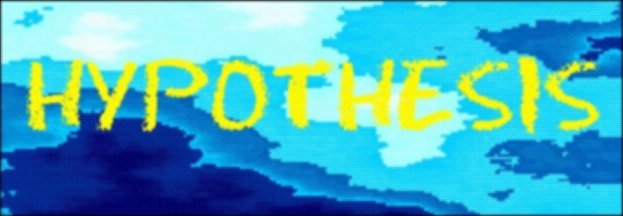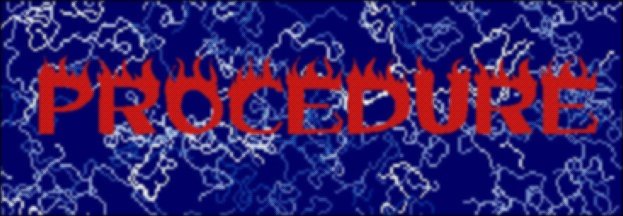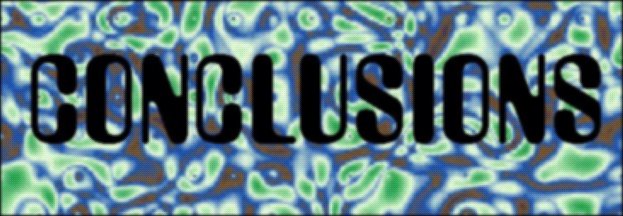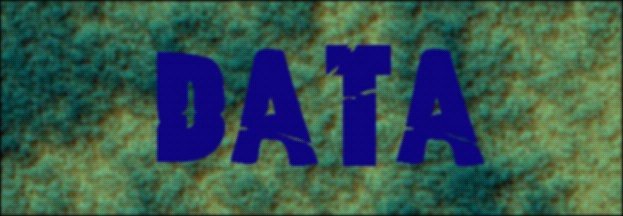
Group Data
Mass of Pellet: 1.84 grams
Length of Pellet: 5.2 cm
Width of Pellet: 2.1 cm
Number of Animals and Kind: 2 Voles, 1 Insect
Class Data
|
Conversion
|
Prey
|
Number
|
|
2
|
Vole
|
15
|
|
12
|
Rat
|
2
|
|
.25
|
Shrew
|
4
|
|
2
|
Bird
|
1
|
|
1
|
Mice
|
1
|
|
13
|
Gopher
|
0
|
|
2.75
|
Mole
|
0
|
|
.5
|
Insect
|
1
|
|
12
|
Frog
|
0
|
|
TOTAL
|
24
|
Collective Data
| Prey | Conv. Factor | Biomass Units | % of Biomass |
| 62 Voles | 2 | 128 | 32.43 |
| 9 Rats | 12 | 108 | 28.20 |
| 16 Shrews | .25 | 4 | 1 |
| 4 Birds | 2 | 8 | 2.10 |
| 32 Mice | 1 | 32 | 8.30 |
| 4 Gophers | 13 | 52 | 13.60 |
| 15 Moles | 2.75 | 41.25 | 10.80 |
| 3 Insects | .5 | 1.5 | 0.40 |
| 1 Frog | 12 | 12 | 3.10 |

| Conv | Prey | R6 (7) | R7 (7) | R8 (9) | G3 (7) | G4 (7) | R5 (7) | Total | % Total |
| 2 | Vole | 8 | 15 | 16 | 13 | 6 | 4 | 62 | 42 |
| 12 | Rat | 1 | 2 | 0 | 11 | 3 | 2 | 9 | 6 |
| .25 | Shrew | 2 | 4 | 0 | 3 | 7 | 0 | 16 | 11 |
| 2 | Bird | 0 | 1 | 0 | 0 | 3 | 0 | 4 | 3 |
| 1 | Mice | 6 | 1 | 0 | 12 | 6 | 7 | 32 | 22 |
| 13 | Gopher | 0 | 0 | 1 | 2 | 1 | 0 | 4 | 3 |
| 2.75 | Mole | 0 | 0 | 0 | 4 | 10 | 1 | 15 | 10 |
| .5 | Insect | 2 | 1 | 0 | 0 | 0 | 0 | 3 | 2 |
| 12 | Frog | 0 | 0 | 1 | 0 | 0 | 0 | 1 | 0.6 |
| Total | 19 | 24 | 18 | 35 | 31 | 14 | 146 |
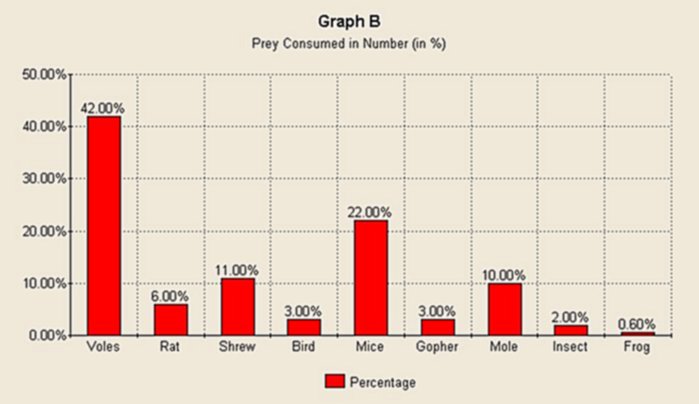
Analysis
The Indiana Barn Owl (Tyto Alba) prefers voles to any other animal. Mice are also frequently eaten. As a whole, more mammals are eaten than reptiles, insects or birds. This shows that there is a greater availability of mammals at night than any other type of animal in Indiana.

